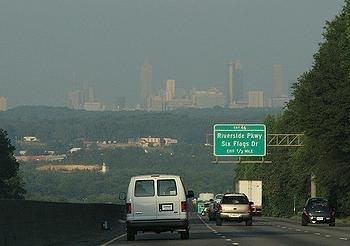NPR did an analysis of ozone this spring compared to spring ozone for the last 5 years, and found that ozone decreased somewhat this year, but not as much as we would have thought. The median decrease for the country was 7%.
They analyzed over half a million air pollution measurements, from more than 900 monitor sites all over the country.
It turns out that even though car traffic is down as much as 40% in some areas this year, trucks, trains and shipping of essential goods, as well as power generation, manufacturing and refineries, are still creating the precursors for ozone pollution.
So we are breathing less ozone, but it’s not as low as you would guess from the decreased traffic.
This shows how we have to transform all sectors of our economy to deal with air pollution and climate change – power generation, all sectors of transportation, and manufacturing.
We know that ozone, particulates, nitrogen oxides, and other air pollution cause serious health problems and deaths. Burning fossil fuels for power or transportation also contributes to climate change, which is harming our health now. We truly need to transform our whole economy to clean energy. It’s a public health crisis.
Read the full NPR report here, it has a lot of information.





